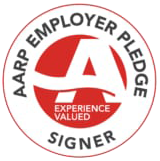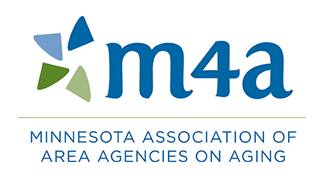Warning Signs of Alzheimer’s Disease
Some change in memory is normal as we grow older, but the symptoms of Alzheimer’s disease are more than simple lapses in memory. People with Alzheimer’s experience difficulties in communicating, learning, thinking and reasoning – problems severe enough to have an impact on an individual’s work, social activities and family life.
The Alzheimer’s Association believes that it is critical for people with dementia and their families to receive information, care and support as early as possible. To help family members and health care professionals recognize the warning signs of Alzheimer’s disease, the Association had developed a list of common symptoms.
 Memory Loss: One of the most common early signs of dementia is forgetting recently learned information. While it is normal to forget appointments, names or telephone numbers, those with dementia will forget such things more often and not remember them later.
Memory Loss: One of the most common early signs of dementia is forgetting recently learned information. While it is normal to forget appointments, names or telephone numbers, those with dementia will forget such things more often and not remember them later.
Difficulty Performing Familiar Tasks: People with dementia often find it hard to complete everyday tasks that are so familiar we usually do not think about how to do them. A person with Alzheimer’s may not know the steps for preparing a meal, using a household appliance or participating in a lifelong hobby.
Problems with Language: Everyone has trouble finding the right word sometimes, but a person with Alzheimer’s often forgets simple words or substitutes unusual words, making his or her speech or writing hard to understand. If a person with Alzheimer’s is unable to find his or her toothbrush, for example, the individual may ask for “that thing for my mouth.”
Disorientation to Time and Place: It’s normal to forget the day of the week or where you are going. But people with Alzheimer’s disease can become lost on their own street. They may forget where they are and how they got there, and may not know how to get back home.
Poor or Decreased Judgment: No one has perfect judgment all of the time. Those with Alzheimer’s may dress without regard to the weather, wearing several shirts on a warm day or very little clothing in cold weather. Those with dementia often show poor judgment about money, giving away large sums to telemarketers or paying for home repairs or products they don’t need.
Problems with Abstract Thinking: Balancing a checkbook is a task that can be challenging for some. But a person with Alzheimer’s may forget what the numbers represent and what needs to be done with them.
Misplacing Things: Anyone can temporarily misplace a wallet or a key. A person with Alzheimer’s disease may put things in unusual places like an iron in the freezer or a wristwatch in the sugar bowl.
Changes in Mood or Behavior: Everyone can become sad or moody from time to time. Someone with Alzheimer’s disease can show rapid mood swings – from calm to tears to anger – for no apparent reason.
Changes in Personality: Personalities ordinarily change somewhat with age. But a person with Alzheimer’s can change dramatically, becoming extremely confused, suspicious, fearful or dependent on a family member.
Loss of Initiative: It is normal to tire of housework, business activities or social obligations at times. The person with Alzheimer’s disease may become very passive, sitting in front of the television for hours, sleeping more than usual or not wanting to do usual activities.
If you recognize any of these warning signs in yourself or a loved one, the Alzheimer’s Association recommends consulting a physician. Early diagnosis of Alzheimer’s disease or other disorders causing dementia is an important step to getting appropriate treatment, care and support services.
 If you would like more information about “Warning Signs of Alzheimer’s Disease” call the Senior LinkAge Line® at 1-800-333-2433. The Senior LinkAge Line®: A One Stop Shop for Minnesota Seniors is a free statewide service of the Minnesota Board on Aging and Area Agencies on Aging. Specialists provide one-to-one assistance with helping older adults age well and live well. Call 1-800-333-2433 for assistance Monday through Friday from 8:00am to 4:30pm or chat with a specialist online during these hours at www.MinnesotaHelp.info®.
If you would like more information about “Warning Signs of Alzheimer’s Disease” call the Senior LinkAge Line® at 1-800-333-2433. The Senior LinkAge Line®: A One Stop Shop for Minnesota Seniors is a free statewide service of the Minnesota Board on Aging and Area Agencies on Aging. Specialists provide one-to-one assistance with helping older adults age well and live well. Call 1-800-333-2433 for assistance Monday through Friday from 8:00am to 4:30pm or chat with a specialist online during these hours at www.MinnesotaHelp.info®.




